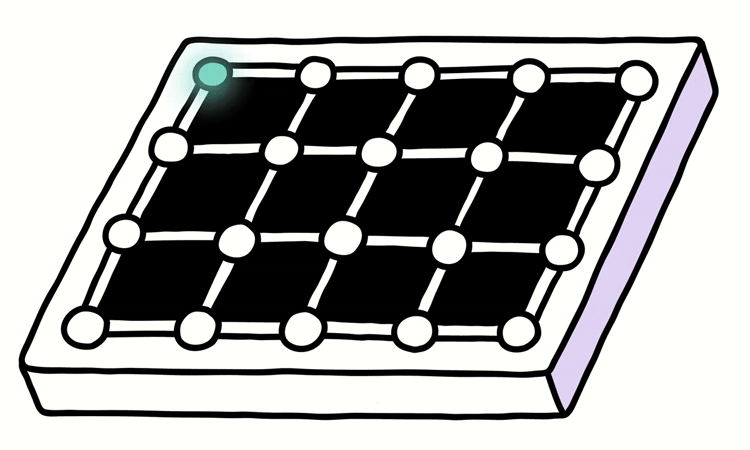Bitcoin Technology ‘Blockchain’ Could Provide Smarter Smart Grids
On an electricity grid, electrons generated from the sun, wind, or other renewable sources are indistinguishable from those generated by fossil fuels. To keep track of how much clean energy is produced, governments around the world have created systems based on tradable certificates.
Problem is, the way we manage these certificates ‘sucks’, and it’s holding up investment in renewable power, said Jesse Morris, an energy expert at the Rocky Mountain Institute. A new system based on blockchain, the technology at the heart of Bitcoin and other digital currencies, could fix this, he said.
Keeping track of renewable-energy certificates is one of dozens of potential applications of blockchain technology that could solve data management challenges in the electricity sector without disrupting business as usual, according to Morris. He and many others believe that in the long term, the technology could help transform the very architecture of the grid itself.
A blockchain is a shared, encrypted ledger that is maintained by a network of computers. These computers verify transactions—in the case of Bitcoin, the transfer of cryptocurrency between individual users. Each user can access the ledger, and there is no single authority. Advocates say the technology could be especially promising in industries where networks of peers—electricity producers and consumers, connected via the grid, for instance—depend on shared sets of data.
When a renewable-power plant generates a unit of electricity today, a meter spits out data that gets logged in a spreadsheet. The spreadsheet is then sent to a registry provider, where the data gets entered into a new system and a certificate is created. A second set of intermediaries brokers deals between buyers and sellers of these certificates, and yet another party verifies the certificates after they are purchased.
Such a byzantine system racks up transaction costs, while leaving plenty of room for accounting errors that can range from honest mistakes to outright fraud. The lack of transparency also scares many people off entirely.
What if the meter wrote the data directly to a blockchain instead? Most of these problems would vanish at a stroke, said Morris.
And that’s just the beginning—many energy experts are convinced that blockchain technology has the potential to touch off a fundamental transformation of modern energy grids.
The electricity sector is, for the most part, still based on massive, centralized power plants that generate power sent long distances over transmission and distribution lines. In recent years, though, a growing number of smaller ‘distributed’ power generators and storage systems, like rooftop solar panels and electric-vehicle batteries, have been connecting to the grid.
The owners of these systems struggle to maximize their value because the system is so inefficient, said Jemma Green, cofounder and chair of Power Ledger, an Australia-based startup developing a blockchain-based platform that allows producers to trade energy peer-to-peer with consumers. For instance, it generally takes 60 to 80 days for an electricity producer to get paid. With a blockchain-based system, Green said, producers can get paid immediately, so they need less capital to start and run a generating business.
In such a system, neighbors could simply trade energy with one another—a far more efficient process than selling electrons back to the grid first. Power Ledger has demonstrated a product that can turn an apartment building into a microgrid based on a shared system of solar panels and battery storage, for example. Another company, called LO3 Energy, set up a neighborhood microgrid in Brooklyn.
But the traditional system “hasn’t yet figured out how to deal with” this kind of local trading, Green said. “How much should you pay for using a discrete part of the network?” She said her company’s platform—and blockchain technology in general—can “add a level of sophistication to the market by enabling those more granular transactions.”
To unleash the potential of blockchain in the energy sector, Jesse Morris’s team at RMI has joined with Austria-based blockchain startup Grid Singularity to create a new nonprofit called the Energy Web Foundation. Earlier this month, the EWF launched its own blockchain, which Morris said is “purpose-built for the energy sector.” Based on Ethereum, the network will be a test bed for promising use cases. To validate transactions during the test, EWF will rely on ten major energy companies that have signed on as affiliates.
The team will begin with applications like tracking renewable-energy certificates. In the longer term, though, Morris envisions a world in which homes and buildings are equipped with software that automatically sells and buys power to and from the grid on the basis of real time price signals.


Comments are closed, but trackbacks and pingbacks are open.